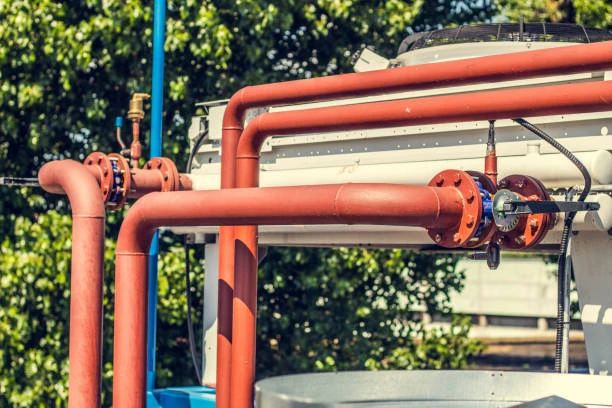Introduction
PPH (Polypropylene Homopolymer) pipes have gained popularity across various industries due to their excellent properties. These pipes provide superior performance compared to traditional materials, making them a preferred choice for many applications. This article explores the competitive advantages of them, their unique features, and their benefits in different sectors.
1. What Are PPH Pipes?
They are made from polypropylene homopolymer, a thermoplastic material known for its strength, durability, and resistance to corrosion. These pipes are widely used in chemical processing, water treatment, and industrial piping due to their excellent mechanical and thermal properties.
Key Features :
- High resistance to chemicals and corrosion
- Low weight and easy installation
- Superior thermal stability
- High impact resistance
2. Durability and Longevity
One of the primary advantages of them is their durability. These pipes have a long service life due to their strong resistance to wear and tear. Unlike metal pipes, they do not rust, corrode, or degrade over time.
Reasons for Durability:
- High resistance to acids and alkalis
- Ability to withstand high-pressure conditions
- Minimal degradation from UV exposure
PPH pipes ensure a reliable and long-lasting piping system, reducing maintenance costs and downtime.
3. Chemical Resistance
They offer excellent resistance to a wide range of chemicals, making them ideal for industries that handle aggressive substances.
Applications in Chemical Industries:
- Transporting corrosive chemicals
- Acidic and alkaline solutions handling
- Industrial waste disposal
They maintain their integrity even when exposed to strong acids, alkalis, and solvents, preventing leaks and pipe failures.
4. Lightweight and Easy Installation
PPH pipes are lightweight compared to metal pipes, making transportation and installation easier. This reduces labor costs and speeds up the installation process.
Installation Advantages:
- Simple jointing methods such as heat fusion welding
- Reduced need for heavy lifting equipment
- Faster assembly and fewer installation errors
The ease of handling makes them a cost-effective choice for construction projects.
5. High Temperature Resistance
They can withstand high temperatures, making them suitable for hot water and industrial fluid transportation. They maintain their structural integrity even in extreme conditions.
Temperature-Resistant Applications:
- Hot water distribution systems
- Steam transportation in industrial plants
- High-temperature chemical processing
This advantage makes them more reliable than PVC or other thermoplastic pipes in demanding applications.
6. Low Maintenance Costs
They require minimal maintenance due to their resistance to corrosion, scaling, and biological growth. Unlike metal pipes, they do not suffer from rust or mineral buildup.
Maintenance Benefits:
- No need for frequent cleaning or chemical treatments
- Lower risk of blockages and leaks
- Reduced downtime for repairs and replacements
Long-term cost savings make them a financially sound investment for industrial and residential projects.

7. Environmental Benefits
They are environmentally friendly due to their recyclability and energy-efficient manufacturing process.
Eco-Friendly Features:
- 100% recyclable material
- Lower carbon footprint than metal pipes
- Reduced energy consumption in production
Industries aiming for sustainability prefer PPH pipes for their eco-friendly advantages.
8. Versatile Applications
PPH pipes are used in various industries, proving their adaptability and competitive edge.
Common Applications:
- Chemical processing plants
- Water treatment facilities
- Food and beverage industries
- HVAC systems
- Medical and pharmaceutical industries
Their versatility makes them a preferred choice for diverse industrial and commercial needs.
9. Cost-Effectiveness
PPH pipes offer a cost advantage over traditional materials due to lower material, installation, and maintenance costs.
Cost-Saving Factors:
- Lower transportation costs due to lightweight structure
- Faster installation reduces labor expenses
- Minimal maintenance lowers long-term expenses
These factors contribute to the growing popularity of them in budget-conscious projects.
10. Superior Mechanical Properties
They possess high impact strength, excellent flexibility, and superior pressure resistance.
Key Mechanical Advantages:
- High tensile strength
- Good impact resistance, even at low temperatures
- Resistance to mechanical stress and vibrations
These properties enhance the reliability and lifespan of PPH piping systems.
Conclusion
They offer a range of advantages, including chemical resistance, durability, lightweight construction, and cost-effectiveness. Their superior performance across multiple industries makes them a competitive choice for piping systems. Whether in chemical processing, water treatment, or industrial applications, PPH pipes provide reliable and efficient solutions.
Frequently Asked Questions (FAQs)
1. What industries use them the most?
PPH pipes are widely used in chemical processing, water treatment, food and beverage production, and industrial fluid transportation.
2. Are PPH pipes suitable for hot water applications?
Yes, PPH pipes can withstand high temperatures, making them ideal for hot water distribution and industrial fluid handling.
3. How do PPH pipes compare to PVC pipes?
PPH pipes have better chemical resistance, higher temperature tolerance, and greater durability than PVC pipes, making them suitable for harsher environments.
4. Are PPH pipes environmentally friendly?
Yes, PPH pipes are recyclable and have a lower environmental impact than traditional metal pipes.
5. How long do PPH pipes last?
PPH pipes can last for decades with minimal maintenance, making them a cost-effective long-term investment.